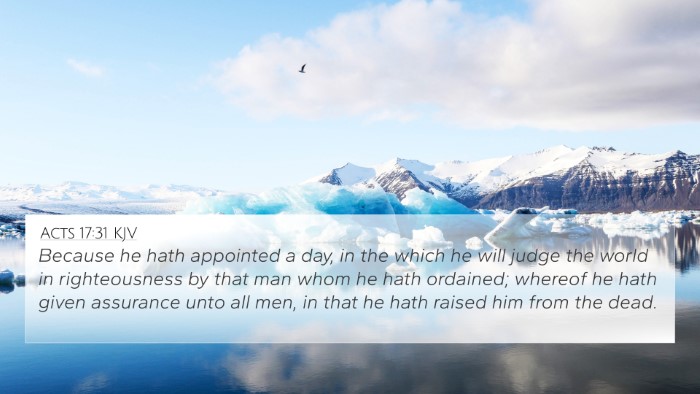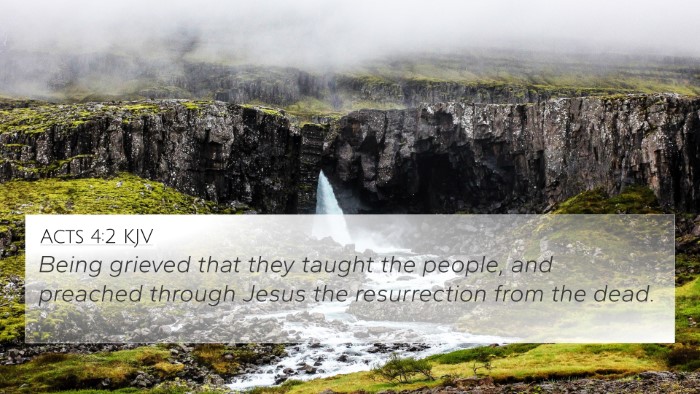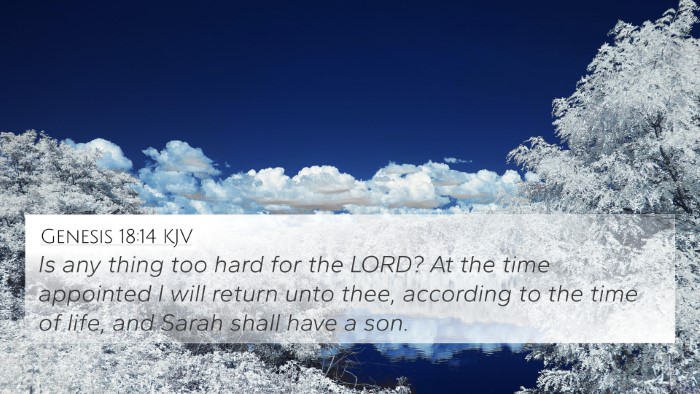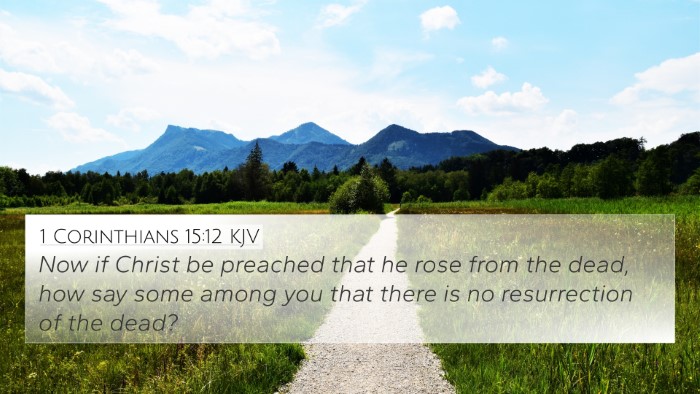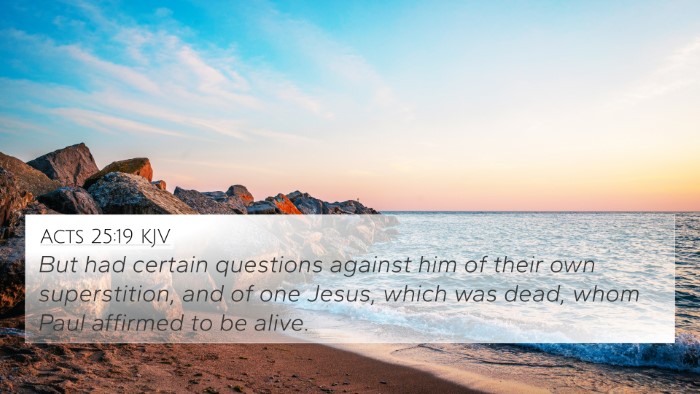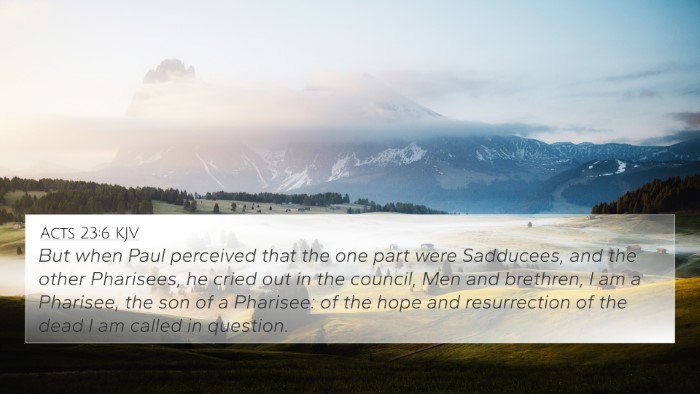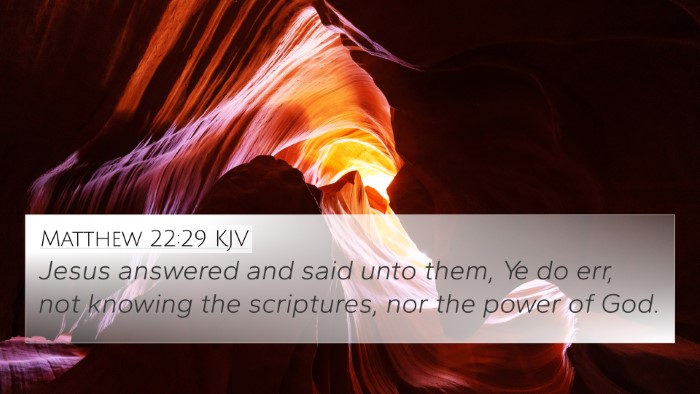Understanding Acts 26:8
Acts 26:8 poses a significant question formulated by Paul during his defense before King Agrippa, asking: "Why should it be thought a thing incredible with you, that God should raise the dead?" This verse encapsulates pivotal themes such as faith in the resurrection and the conflict between belief and skepticism regarding divine power.
Summary of Insights from Public Domain Commentaries:
- Matthew Henry: Henry emphasizes that Paul's question not only reflects his confidence in God's ability to raise the dead but also highlights the limited scope of human understanding when it comes to divine acts. He notes that the resurrection serves as a foundational belief within Christian doctrine, one that connects believers directly to the hope of eternal life.
- Albert Barnes: Barnes provides a robust examination of the resurrection’s importance. He indicates that if God can create life, raising the dead is not beyond His ability. Barnes suggests that the skepticism surrounding resurrection is often rooted in human reasoning, pointing to the greater theme of faith superseding doubts.
- Adam Clarke: Clarke's analysis further underscores the question's rhetorical nature, suggesting that Paul aimed to provoke a reflection on the nature of belief. His commentary also outlines how this verse connects to Old Testament scriptures that support the resurrection concept, drawing a line from Jewish beliefs to early Christian understanding.
Relevant Bible Verse Cross-References
Acts 26:8 connects with several other Bible verses that explore the themes of resurrection and divine power. Here are some key references:
- Job 14:14: "If a man dies, shall he live again? All the days of my appointed time will I wait, till my change come." This Old Testament verse contemplates resurrection, highlighting the continuity of life beyond death.
- John 11:25-26: "Jesus said unto her, I am the resurrection, and the life: he that believeth in me, though he were dead, yet shall he live." Jesus’ declaration reinforces the belief in life after death, central to Christian faith.
- Romans 6:4: "Therefore we are buried with him by baptism into death: that like as Christ was raised up from the dead by the glory of the Father, even so we also should walk in newness of life." Here, Paul reaffirms the transformative power of Christ’s resurrection.
- 1 Corinthians 15:20: "But now is Christ risen from the dead, and become the firstfruits of them that slept." This verse alludes to the promise of resurrection for all believers based on Christ's victory over death.
- Philippians 3:10-11: "That I may know him, and the power of his resurrection, and the fellowship of his sufferings, being made conformable unto his death; if by any means I might attain unto the resurrection of the dead." This illustrates the intimate connection believers have with the resurrection through their faith.
- Revelation 20:6: "Blessed and holy is he that hath part in the first resurrection: on such the second death hath no power, but they shall be priests of God and of Christ, and shall reign with him a thousand years." This final promise points to the ultimate victory over death that believers can anticipate.
- Hebrews 11:35: "...and others were tortured, not accepting deliverance; that they might obtain a better resurrection." This emphasizes the hope that sustains believers even in suffering, affirming the belief in resurrection as a reward.
Cross-Referencing Bible Study
This examination of Acts 26:8 illustrates how crucial it is to engage in comparative Bible verse analysis to deepen our understanding of scripture. By cross-referencing Acts 26:8 with the verses listed above, we can see how interconnected the concept of resurrection is throughout both the Old and New Testament:
- Identifying Connections: By linking Bible scriptures from various parts, one can establish a comprehensive view of resurrection theology. This can be seen as a consistent theme emphasizing God’s power and promise.
- Thematic Bible Verse Connections: The verses discussed offer a rich tapestry of belief that underpins Christian hope in life after death. Connections made in their contexts help elucidate varied facets of this doctrine.
- Bible Cross-Reference Guide: Utilizing tools for Bible cross-referencing such as concordances can provide deeper insights into scriptural themes and aid in sermon preparations or personal studies.
Learning to Cross-Reference Effectively
For those learning how to find cross-references in the Bible, Acts 26:8 serves as a pivotal point for exploring resurrection themes. Here are some methods to help in this process:
- Utilize a Bible Concordance: This can assist in identifying keywords and themes associated with resurrection across different passages.
- Engage in Cross-Reference Bible Study: Grouping verses by theme encourages a more profound exploration of each topic.
- Explore Inter-Biblical Dialogue: Consider how themes evolve from the Old Testament to the New Testament, such as how Ezekiel's valley of dry bones (Ezekiel 37) foreshadows New Testament resurrections.
- Reflect on Similarities: Analyze how different scripture relates to the resurrection, including similarities and contrasts among Gospel accounts and Pauline letters.
Conclusion
Acts 26:8, through its inquiry regarding God's ability to raise the dead, opens the door to profound theological discussions on resurrection. By engaging with public domain commentaries and leveraging cross-referencing tools, readers can uncover rich, interconnected layers of meaning throughout the Bible, thereby enhancing their understanding and faith.



